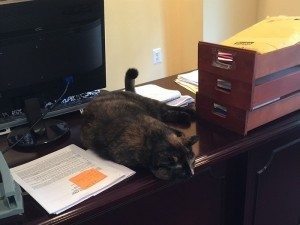 Dear Angel,
Dear Angel,
I read somewhere that federal law requires every nursing home to create a care plan. What is included in a care plan, and shouldn’t it be something that is created before a loved one enters a nursing home? Thanks for your help!
Akira Plann
—
Dear Akira,
That’s correct: federal law requires every nursing home to create a care plan. Nursing homes are required to submit this information to the federal government, which uses it for quality measures, nursing home payment, and state inspections.
When you or a loved one first enter a nursing home, the staff will get your health information and review your health condition to prepare your care plan. You (if you’re able), your family (with your permission), or someone acting on your behalf has the right to take part in planning your care with the nursing home staff.
According to the Centers for Medicare and Medicaid Services (CMS), the basic care plan includes:
- A health assessment (a review of your health condition) that begins on the day you’re admitted, and must be completed within 14 days of admission;
- A health assessment at least every 90 days after your first review, and possibly more often if your medical status changes;
- Ongoing, regular assessments of your condition to see if your health status has changed, with changes to your care plan as needed.
The baseline assessment should occur within two weeks after a resident moves into the new facility, by a team from the nursing home (which may include a doctor, nurse, social worker, dietician, and physical, occupational, or recreational therapist). This team will use information provided by the resident and the family about the resident’s medical and emotional needs to generate this baseline care plan, which then becomes the yardstick against which the caregivers can measure the resident’s progress.
How Loved Ones Can Help
You can help by making a list of your loved one’s medical, psychological, spiritual, and social needs, as well as his or her preferences and usual routines. For example, you might give the staff the following type of information: “Dad likes to listen to classical music on the radio as he falls asleep,” or “Mom’s always been a night-owl; she goes to sleep at around 1 a.m. and wakes up at 10 a.m.” You should also note signs of depression or symptoms of dementia. Since the assessment team does not know your loved one as well as you do, your input may be invaluable, especially if the resident is not able to provide meaningful input.
Federal law also requires that nursing homes review the resident’s care plan every three months and whenever the resident’s condition changes. It must also reassess the resident annually. For example, if your father had bladder control when he entered the nursing home but has since become incontinent, this significant change in his status means the nursing home staff must develop a new care plan that addresses his new needs.
Monitor Your Loved One’s Care
As a care advocate, you’ll want to monitor your loved one’s care to be sure the nursing home is providing the care outlined in the care plan. You should also attend all care planning meetings, whether regularly scheduled or when held because of a change in your loved one’s health. By being as involved as possible with the care planning process, you will help to ensure that your loved one gets the best possible care while in the nursing home.
Don’t Wait Until Your Loved One Is in a Nursing Home to Make a Care Plan
Although development of a care plan is something required to be done by a nursing home, a care plan can, and ideally should, be started in advance, well before the need for nursing home care. Please see today’s article for more details on planning ahead and on how our Long-Term Care Directive® accomplishes this for our clients.
Hope this helps!
Angel
















Leave a comment
You must be logged in to post a comment.